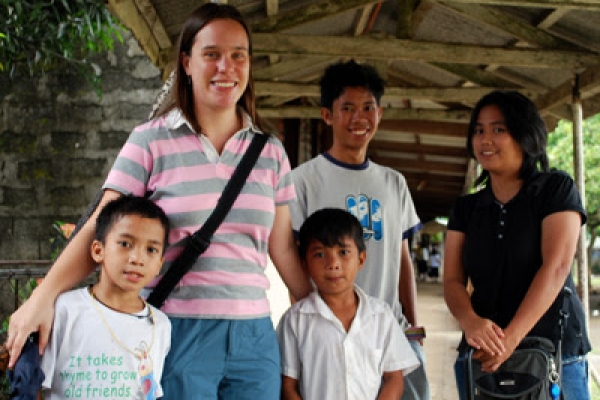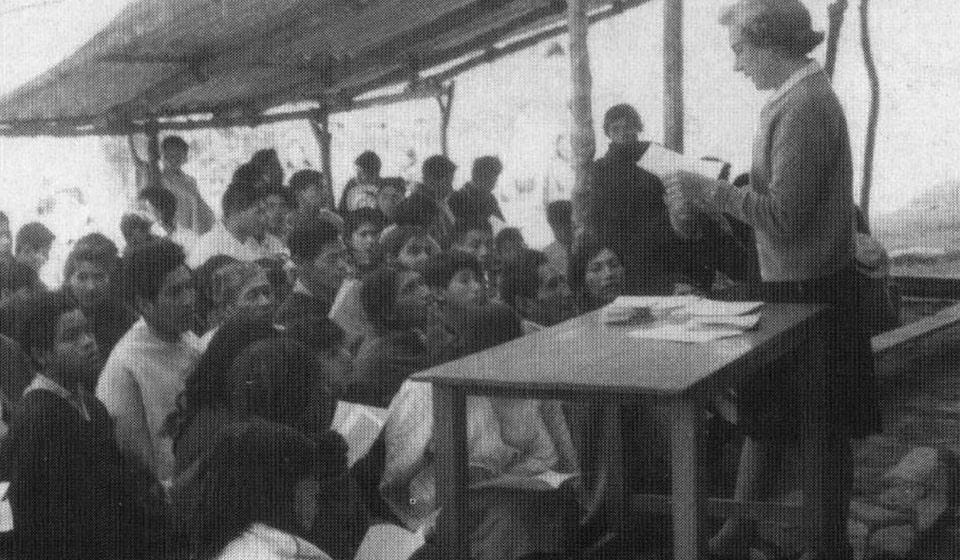
The Singular Power of Singleness
Since Paul the Apostle, the unmarried have served a central role in Christ’s missionary movement. Although marriage and families are not prohibited and certainly can provide unique ministry opportunities, there are good reasons why the Bible teaches us not to marry, if possible. In 1 Corinthians 7, Paul infers that singleness is actually the higher state when it comes to serving God, as long as He has gifted us to live abundantly in it. That certainly wasn’t my gifting, but I praise God for those who have it and honor many of them as heroes of the faith with more spiritual offspring than I’ll ever have.
One of my Wycliffe aunts, Mariana Slocumb, lost her fiancé to a heart attack just six days before their wedding. The young man had already begun to work among the Tzeltal people and rather than lick her wounds at home, Mariana took up the torch of the Tzeltal translation. There was great opposition to the Gospel. Chapels were burned and converts were killed, but the Lord of the Harvest had a plan.
Mariana Slocum in her early days in Mexico with SIL.
My Aunt Florence Gerdel and her ministry partner, Eunice, attended “Camp Wycliffe,” a six-week cross-cultural ministry training, in the summer of 1936. Most mission leaders opposed the deployment of single women to translate native languages. The danger and difficulty made this seem like men’s work.
But Uncle Cam Townsend, the founder of Wycliffe Bible Translators, saw things differently, as usual. People even told him these young ladies were “too pretty to be missionaries,” but he trusted their call and the One who gave it. By the end of 1941, just six years after beginning their work with the Mazatec people, they finished the first draft of the New Testament. There were also five other pairs of single women working in Bible translation throughout Mexico.
Then, Eunice fell in love and married Dr. Wentworth Pike leaving Florence Gerdel without a translation partner. In 1947, she joined Mariana among the Tzeltal. As a nurse, Florence brought modern health education along with the life-giving message of the Gospel. Just two years later, there were 400 Tzeltal believers, and the New Testament had been completely translated into their language. But that was just the beginning.
The baby Tzeltal church agreed to send Mariana and Florence to yet another language group that didn’t have God’s Word in their heart language. Eight years later, they completed the translation of the New Testament in the Bachajon language in the Mexican state of Chiapas.
For most of us, completing three New Testament translations and effectively planting churches among three of the world's unreached people groups is more than we’ll ever hope to accomplish. But this dynamic duo didn’t stop. They heard of a need in Colombia and moved to Lomalinda, the SIL base where I lived as a boy, in the mid-sixties to begin the Paez translation. Growing up, I thought they were just a couple of old spinsters. But oh how proud I am today to have lived in the shadow of such heavenly heroes!
Mariana and Florence worked together to translate the New Testament into four native languages.
Single members of the body of Christ remind us that we are all members of one family under God the Father. They can connect more freely and fully with those God is using them to reach simply because they don’t have to care as much for the home front. In fact, single disciples are like Christ in their singleness, fully anticipating the wedding supper of the Lamb, when there will be no more marriage except that of Christ and his Church.

